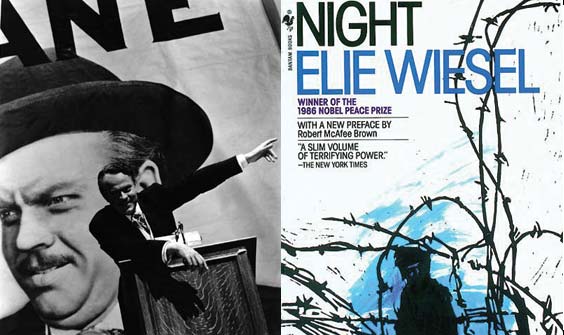
Owing perhaps to his prodigious literary output, the late, beloved Elie Wiesel was unforgiving of bad, or inadequate, Holocaust art, which may explain his refusal to work with one of the greatest actors and filmmakers of the 20th century: Orson Welles.
In a 2006 profile, Wiesel revealed that the man behind such classics as Citizen Kane (1941) and the infamous radio broadcast War of the Worlds (1938) approached him to adapt his celebrated work Night (1960) for the big screen. But Wiesel wasn’t interested: there is no room for silence on the screen, he reportedly said. Without the silences, the book loses its meaning. “These words [need] to be read.”
Interestingly, a 2013 letter to the editor of the New York Times, penned by a man named Marc Mishaan, contradicts this story.
Mishaan, who worked in Hollywood in the 1970s, bought the film rights to Night, and had the idea to approach Welles to helm the project. According to Mishaan, Wiesel “thought Welles was a wonderful idea.” It was Wiesel’s agent who disapproved.
Money was raised and a deal was finalized. But Welles, who was notorious for flaking on projects during this period, didn’t deliver. After many months, he half-assed a short treatment of the tremendous novel, then promptly forgot about it.
Though a letter to the editor isn’t exactly a trustworthy source, it’s thrilling to think about what could have been.
JTA has documented Jewish history in real-time for over a century. Keep our journalism strong by joining us in supporting independent, award-winning reporting.





